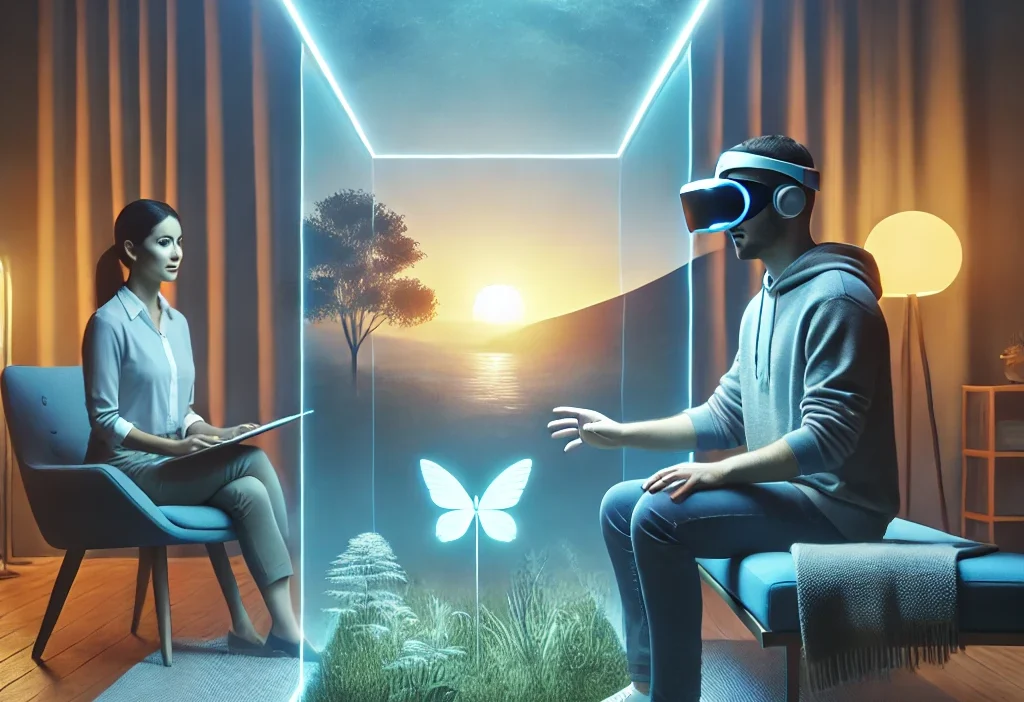Virtual Reality Therapy: A New Era in Mental Health Care
Virtual reality therapy is transforming mental health treatment. It creates immersive, interactive environments that enhance patient outcomes. This innovative approach provides a safe and controlled space where individuals can address conditions like phobias, PTSD, anxiety disorders, and chronic pain.
How Virtual Reality Therapy Works
Using advanced VR simulations, therapists guide patients through exposure therapy. This allows individuals to confront fears and trauma gradually in a controlled setting. Additionally, virtual reality therapy offers a high level of customization. Therapists can tailor virtual environments to each patient’s needs, ensuring more effective and engaging sessions.
Key Benefits of Virtual Reality Therapy
Research shows that virtual reality therapy improves cognitive function, motor skills, and social abilities. Stroke and brain injury patients benefit from interactive rehabilitation exercises that promote faster recovery. Moreover, VR therapy is becoming a valuable tool for pain management. By immersing patients in engaging experiences, it helps shift their focus away from pain and improves overall well-being.
The Future of Virtual Reality Therapy
As technology advances, VR therapy’s applications will continue to expand. From treating mental health disorders to enhancing physical rehabilitation, it is changing the way therapists care for patients.
Conclusion
Virtual reality therapy is redefining mental health care. It offers immersive, personalized, and effective solutions for anxiety, PTSD, and chronic pain. With its ability to create controlled and interactive environments, therapy becomes more engaging and accessible. As VR technology evolves, its impact on mental health care will only grow.
Related Topic: Digital Immortality
Another exciting advancement in technology is digital immortality. This concept explores how AI and virtual reality could preserve human consciousness. In our article, “Digital Immortality: Unlocking the Future”, we discuss how AI, VR, and data preservation could allow individuals to interact with digital versions of themselves. Just as virtual reality therapy is transforming mental health, digital immortality could reshape how we understand identity, memory, and legacy.





